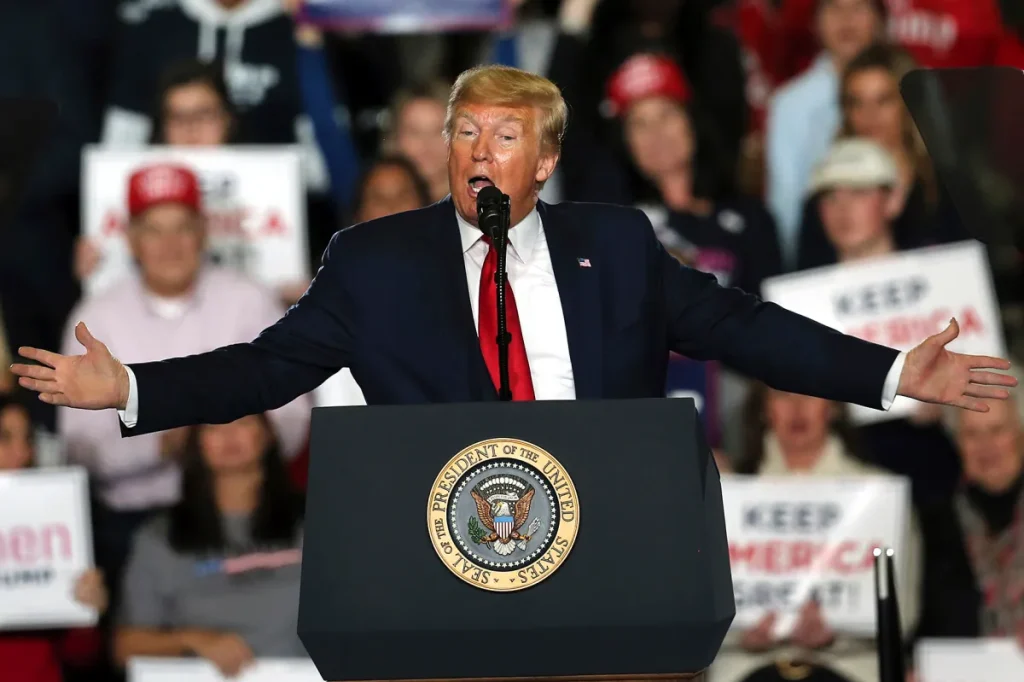The Final Chapter: How Trump Evaded Criminal Charges for 2020 Election Interference
Five years after the contested 2020 presidential election, the American legal system has closed its final criminal case against Donald Trump regarding his alleged attempts to overturn the results. With Georgia’s racketeering prosecution now dismissed and federal election-interference charges abandoned due to presidential immunity, Trump will face no criminal trial for actions that prosecutors once believed constituted a coordinated effort to unlawfully remain in power. This outcome represents the culmination of a complex legal journey marked by procedural challenges, constitutional questions, and political realities that ultimately shielded the president from criminal accountability. The dismissal of the Georgia case by Fulton County Superior Court Judge Scott McAfee on November 26, 2025, effectively ends any prospect of legal consequences for Trump’s post-election activities, raising profound questions about accountability when a defendant becomes president.
The collapse of the Georgia case—widely considered the last viable prosecution related to the 2020 election—came after state prosecutor Peter Skandalakis determined that continuing the case would not serve the public interest. “In my professional judgment, the citizens of Georgia are not served by pursuing this case in full for another five to ten years,” Skandalakis wrote in his dismissal request. Despite acknowledging the seriousness of the underlying conduct, describing how Trump’s efforts “quickly shifted from a legitimate legal effort into a campaign that ultimately culminated in an attack on the Capitol,” Skandalakis concluded that practical challenges made prosecution untenable. He pointed to logistical complications, constitutional constraints on compelling a sitting president’s court appearance, and his belief that the events were primarily “conceived in Washington, D.C., not the State of Georgia.” This reasoning effectively closed the door on what had been a high-profile indictment alleging that Trump and 18 co-defendants had conspired to overturn Joe Biden’s legitimate victory in Georgia—a case built partly around Trump’s recorded call asking Georgia Secretary of State Brad Raffensperger to “find 11,780 votes.”
The Georgia prosecution had already faced significant setbacks before its ultimate dismissal, most notably the disqualification of Fulton County District Attorney Fani Willis over an “appearance of impropriety” stemming from her relationship with a special prosecutor on the case. This disqualification created a leadership vacuum that Skandalakis, a nonpartisan official, was forced to fill himself after being unable to recruit anyone else willing to take on the politically charged case. By the time he assumed control, the prosecution had secured guilty pleas from four defendants, including attorneys Sidney Powell and Kenneth Chesebro, who had agreed to provide truthful testimony in any future proceedings. However, these partial successes proved insufficient to overcome the mounting structural and political obstacles. Trump’s reelection particularly complicated matters, as did growing questions about whether a sitting president could be compelled to stand trial in a state court—considerations that ultimately convinced Skandalakis that moving forward would not “serve the interests of justice.”
The fate of the Georgia case mirrors what happened at the federal level, where Special Counsel Jack Smith was forced to abandon his election interference prosecution after Trump’s 2024 presidential victory and the Supreme Court’s expansion of presidential immunity. In a partially public report released in January 2025, Smith stated that “the admissible evidence was sufficient to obtain and sustain a conviction at trial,” and that Trump “would have been convicted…if he had not successfully been re-elected in 2024.” Smith clearly identified the Constitution’s prohibition on prosecuting a sitting president as the sole factor preventing the case from moving forward—a conclusion that Trump vehemently rejected, calling Smith “deranged” and dismissing the report as “fake.” The parallel collapse of both state and federal prosecutions effectively eliminated all avenues for potential criminal accountability related to the 2020 election, despite prosecutors in both jurisdictions believing they had developed strong cases supported by substantial evidence.
Trump’s reaction to the dismissals underscored the political dimensions of the legal proceedings. He celebrated the Georgia ruling with a social media post declaring that “LAW and JUSTICE have prevailed” and characterizing the prosecution as a “witch hunt.” He went further in public statements, calling for Fani Willis herself to be prosecuted: “What Fani Willis did to innocent people, patriots that love our country… she should be put in jail. She’s a criminal.” In defending his co-defendants, Trump portrayed them as “high-quality people who don’t even know why they were brought in,” framing the entire prosecution as persecution of political allies rather than a legitimate attempt to address alleged election interference. This narrative of vindication stands in stark contrast to the assessments offered by prosecutors like Skandalakis and Smith, who—despite abandoning their cases—maintained that the underlying conduct merited serious legal scrutiny.
With all criminal proceedings now closed, the question of accountability for attempts to overturn the 2020 election shifts entirely from courtrooms to the political arena. As Georgia State University law professor Anthony Michael Kreis observed, the state case had offered “an opportunity for justice and reconciliation and a kind of truth-telling that has been squandered.” Instead, the legal system has demonstrated clear limitations when confronting allegations against a sitting president, particularly when procedural delays allow a defendant to win election before facing trial. The precedent established—that a president can potentially avoid criminal accountability for alleged election subversion through a combination of legal maneuvering, constitutional protections, and electoral victory—will likely spark debate among lawmakers, legal scholars, and election officials for years to come. Five years after the contested 2020 election, the legal chapter has closed, but the implications for American democracy remain open-ended, leaving voters—not prosecutors or judges—as the final arbiters of any consequences for the events surrounding the transfer of power in 2020-2021.


